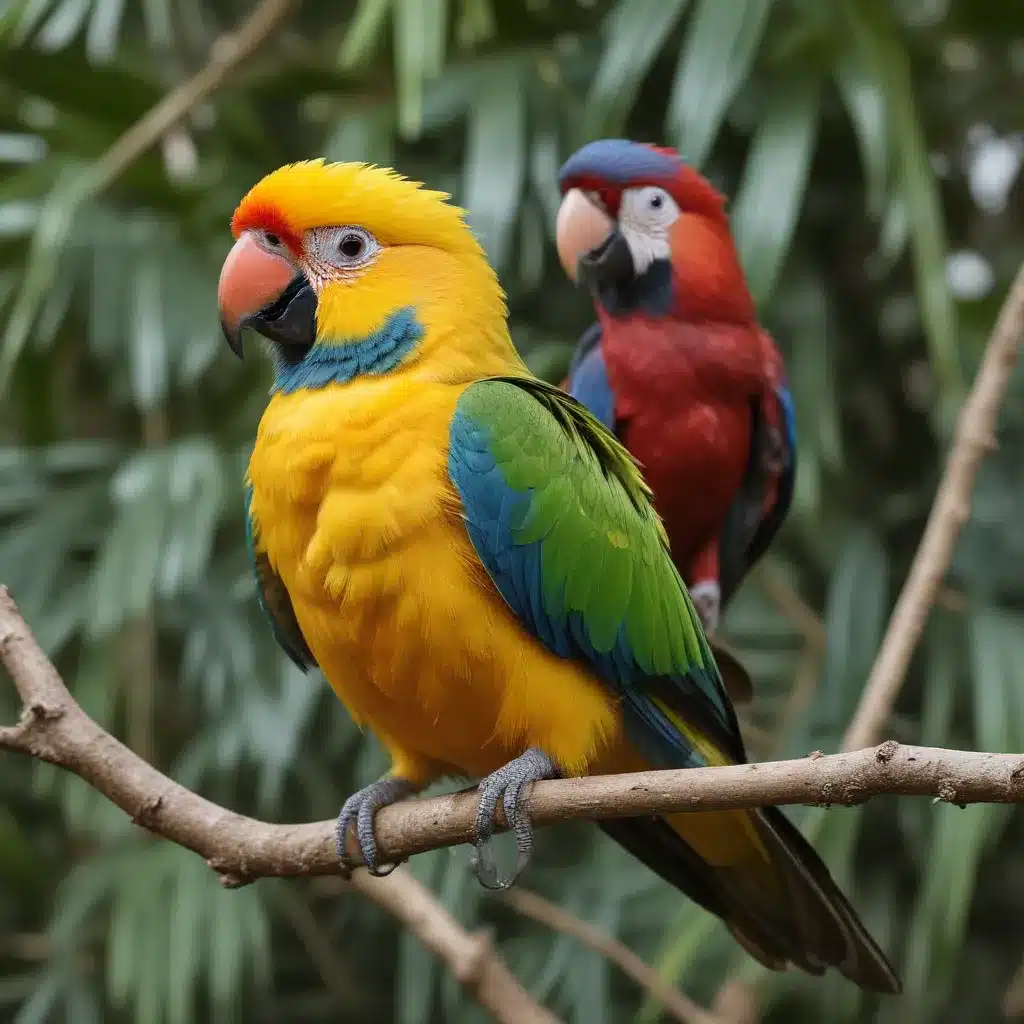
As an experienced avian caretaker and expert in the field, I understand the allure and joy that exotic birds can bring into one’s life. From the vibrant plumage of the Eclectus Parrot to the majestic presence of the Hyacinth Macaw, these remarkable creatures captivate bird enthusiasts across the globe. However, navigating the legal and regulatory landscape surrounding exotic bird ownership can be a daunting task, requiring a keen understanding of the various laws, permits, and best practices involved.
Avian Species and Classifications
Exotic Bird Taxonomy
The world of exotic birds is remarkably diverse, encompassing a wide range of species from various families and orders. These birds hail from various regions, each with its own unique adaptations and behaviors. Understanding the taxonomic classification of exotic birds is essential for ensuring proper care and compliance with relevant regulations.
Native vs. Introduced Avian Species
It’s important to distinguish between native and introduced avian species when it comes to exotic bird ownership. Native species are those that naturally occur within a specific geographic region, while introduced species have been brought in, often inadvertently, from other areas. Owning introduced species can carry significant environmental risks, as they may disrupt the delicate balance of local ecosystems.
Endangered and Threatened Bird Populations
Many exotic bird species are facing threats to their survival, with some classified as endangered or threatened. Responsible exotic bird ownership must consider the conservation status of the species and any restrictions or regulations that may apply. Owners have a crucial role to play in supporting the preservation of these remarkable creatures.
Legal Considerations for Exotic Bird Ownership
Permits and Licensing Requirements
One of the primary legal considerations for exotic bird ownership is the requirement for permits and licenses. Depending on the species, state, and local regulations, owners may need to obtain specific permits or licenses to legally possess and care for their avian companions. Failure to comply with these regulations can result in serious consequences, including fines or even the confiscation of the birds.
Importation and Exportation Regulations
The movement of exotic birds, both within and across international borders, is subject to strict regulations. Owners must familiarize themselves with the requirements for importing or exporting their birds, which may include obtaining permits, meeting health and quarantine standards, and adhering to species-specific trade agreements.
Species-Specific Legal Guidelines
The legal landscape for exotic bird ownership can vary significantly depending on the specific species. Some birds may be subject to additional restrictions or even outright bans, while others may be more readily available for private ownership. Staying informed about the regulations governing the species you wish to own is crucial for ensuring compliance and the well-being of your feathered friend.
Regulatory Landscape for Exotic Bird Ownership
Federal Legislation and Oversight
At the federal level, several laws and agencies play a role in regulating the exotic bird trade and ownership. The Lacey Act, for example, prohibits the transportation of illegally captured or prohibited species across state lines, while the Endangered Species Act (ESA) protects threatened and endangered bird species. The United States Department of Agriculture (USDA) and the U.S. Fish and Wildlife Service (USFWS) are the primary federal agencies responsible for enforcing these regulations.
State and Local Regulations
Beyond federal laws, the regulation of exotic bird ownership is largely left to individual states and local municipalities. Some states have implemented comprehensive bans on the private possession of certain species, while others have more permissive licensing schemes. It’s essential for exotic bird owners to research and comply with the specific regulations in their area, as these can vary significantly across different jurisdictions.
International Wildlife Trade Agreements
The global trade in exotic birds is also subject to international agreements and treaties, such as the Convention on International Trade in Endangered Species of Wild Fauna and Flora (CITES). These agreements aim to regulate the movement of threatened and endangered species, and owners must be aware of any applicable requirements when importing or exporting their birds.
Ethical and Welfare Concerns in Exotic Bird Care
Responsible Ownership Practices
Owning an exotic bird is a significant responsibility that requires a deep understanding of the species’ needs and a commitment to providing the highest level of care. Responsible ownership practices include researching the specific requirements of the bird, ensuring proper habitat setup, meeting nutritional needs, and providing enrichment and socialization opportunities.
Avian Habitat Requirements
Exotic birds have unique habitat requirements that must be meticulously addressed to ensure their well-being. Factors such as enclosure size, temperature, humidity, and perching options can all impact the bird’s physical and mental health. Owners must be prepared to invest in high-quality housing and regularly monitor and maintain the bird’s living environment.
Veterinary Care and Health Management
Accessing specialized veterinary care for exotic birds can be a challenge, as not all veterinarians are experienced in treating these species. Owners must be proactive in finding qualified avian veterinarians and establishing a comprehensive healthcare plan to address any medical issues that may arise. Preventive care, including regular check-ups and appropriate vaccinations, is essential for maintaining the bird’s overall health and well-being.
Navigating the legal and regulatory landscape for exotic bird ownership can be a complex and daunting task, but with the right knowledge and commitment, it is a journey well worth undertaking. By understanding the taxonomic classifications, legal requirements, and ethical considerations involved in exotic bird care, owners can ensure the well-being of their feathered companions while contributing to the preservation of these remarkable species. For more information and resources on exotic bird care, I encourage you to visit Mika Birds Farm, where a wealth of expertise and guidance is available to support your avian journey.


